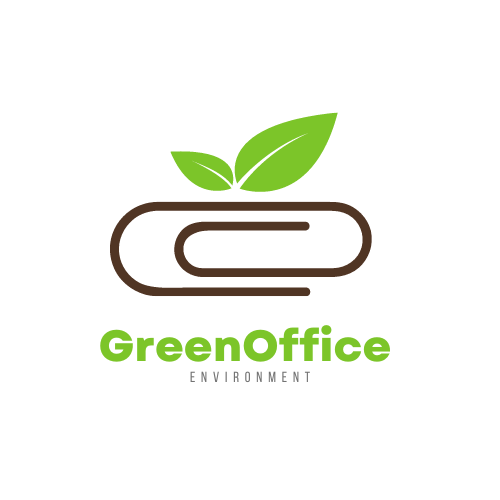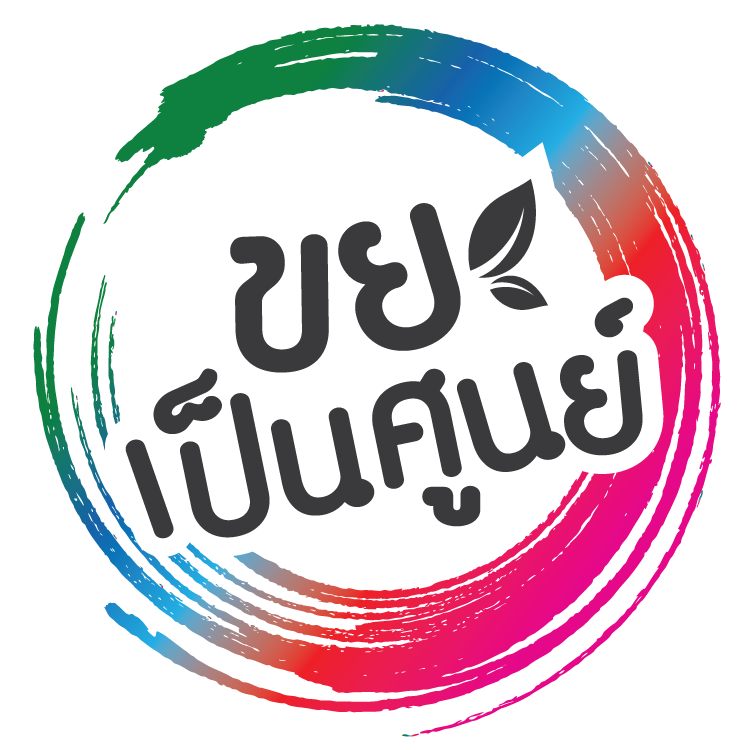
Zero Waste
Solid waste is a global problem that is difficult to manage. Surattani Rajabhat University has always been sought to find innovative solutions to tackle this problem.
Under the project: Low Carbon City of the United Nations Development Program (UNDP), the university, together with the Government Savings Bank and Cargill (Thailand) Co., joined initiative on the project “The Innovative Solutions for Community Waste Bank” to find innovative solutions to tackle this issue by integrating environmental science with digital technology to find innovative solutions to tackle this issue by integrating environmental science with digital technology and engaging with local communities to create behavioral change, resulting in a more sustainable, environmentally friendly waste management system.
Activity
Surattani Rajabhat University aims to become a green university with good environmental management. The university creates the best practices for student and community such as efficient waste collection and management system, Recycling, Reducing the use of natural resources, and food waste-composing
The university action plans to lead to the goal of waste management.
- Source Waste Management – preventing solid waste generation in the first place
- Mid-way waste management – increasing the efficiency of solid waste collection
- Properly disposing of solid waste.
- Promoting and supporting solid waste management of the university and community by focusing on environmental management in terms of resources, environmental technology, waste and pollution, human and society to be a role model for educational institutions in the South and Rajabhat Universities across the country.
Project: Waste Bank Innovation.
The project promotes the policy and innovation to reduce waste in the local areas around the university, which is as much as 63 tons per month and is a big problem that the university and communities have faced for a long time. The project creates the Sustainable Development Goal Station (SDG Station). A station located behind the Phutthathat Thammakos Hall. This is a place for teaching people about proper waste sorting and selling waste back to SDG stations for recycling. The project will ensure that waste will be sorted properly and the university student will be able to learn about waste management through real-world experience. In addition, the project will generate income for local people from selling waste, as well as reducing the amount of waste that may be dumped into the sea.
Waste Segregation
How to ‘Tink’ (How to dispose of waste effectively.).
Suratthani Rajabhat University promote and raise awareness about effective waste disposing and waste sorting.
“Which is the right bin for my garbage?”
- Green bin Household food waste or perishable and biodegradable waste such as food leftover, expired food, fruit peel and cores, etc.
- Yellow bin Recyclable waste such as paper, plastic, glass, scrap metal, fabrics, etc.
- Blue bin Residual waste – all other non-recyclable solid waste such as plastic tubes, plastic bags, wrappers, foam, etc.
- Red bin Hazardous waste – Batteries, Light tubes, medicines, paint and its containers, etc.
There are more than 50 waste sorting bins throughout the university
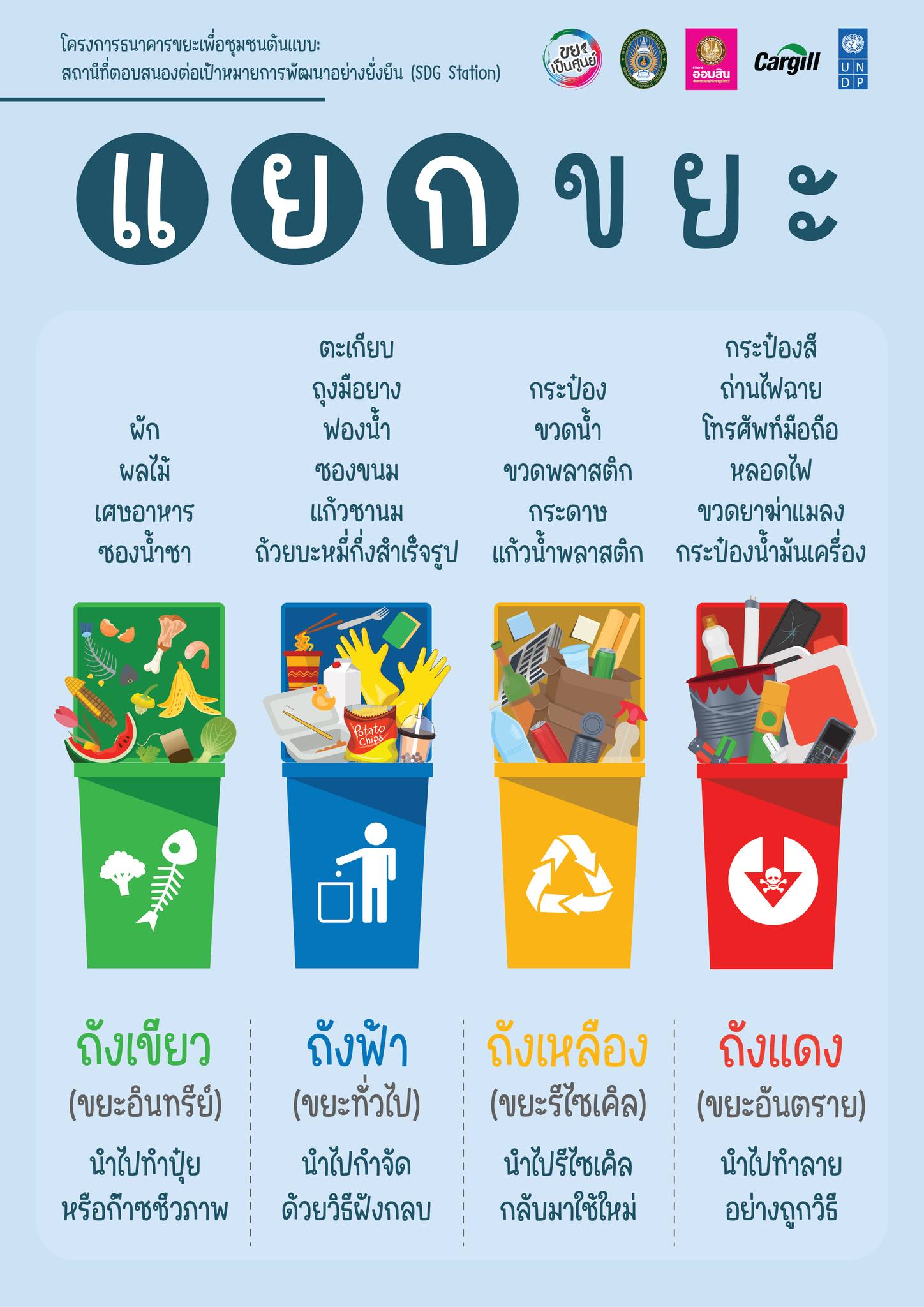
‘Fabric bag station’
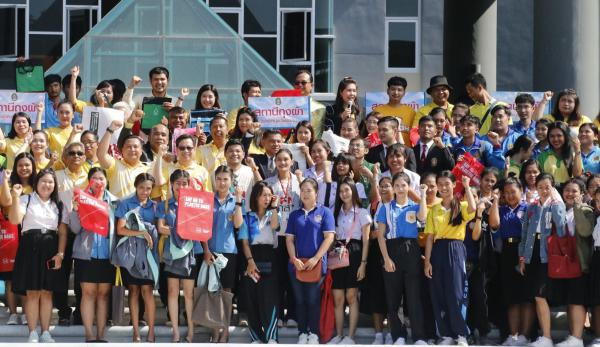
Promotes the use of reusable fabric bags and establishing Eco-Responsibility Point.
Suratthani Rajabhat University as a community-based higher education institution, realizes the environmental problems currently happening, including deforestation, air pollution, wastefulness in resource usage, and especially, waste generated from human activities. Throughout the years, the university has undertaken various projects aimed at promoting environmental responsibility and waste management, such as promoting waste separation, using reusable glass and containers instead of plastic and foam containers. These initiatives aim to create awareness and contribute to environmental protection efforts.
Throughout the past, the project ‘Fabric bag station’ received good cooperation both inside and outside the university. Inside the university, staff and student donated cloth bags and share them at the ‘Fabric bag station’ around the university, such as at the convenience stores, markets, dining halls, and the classrooms. The Environmental Protection Club, a student group, oversees and is responsible for the project.
The "Green University" Internal Organizational Development Program aims to promote the development of Suratthani Rajabhat University to become a green university.
The training session on the separation of recyclable waste and introduction to the use of the Trash Lucky app, targeted primarily towards faculty, staff, and students of the university and its affiliated institutions, as well as interested parties from student dormitories and clubs. The event received great interest from all attendees and was honored to have speakers from Bright Environmental Management and the Chulalongkorn University Energy Research Institute provide knowledge and training. The objective of the project is to educate participants on the types of waste and each individual waste type, so they can effectively sort the waste in their organizations.

Suratthani Rajabhat University aims to be a Green University, with a policy to drive the organization towards sustainable waste management practices within the university. The goal is to reduce the use of plastic bags, separate waste and make the most efficient use of energy. International School of Tourism has initiated the Zero Waste Station & Farm to Table project in collaboration with several public and private organizations such as Central Retail, Koh Samui Municipality, Wat Lam 1 School, and community networks, to tackle the
problem of organic waste. The organic waste, which will be collected from many places on Samui island such as Family Mart, Tops Supermarket, Seven Eleven, Centara Hotels & Resorts, and Central Festival Samui. The collected organic waste will then be sent to two locations, Municipal School 1 and Suratthani Rajabhat University, for further processing through the Cowtec machine that converts the waste into fertilizer and biogas,
The products obtained from the transformation are biogas and compost.
- Biogas is converted into cooking gas and used in the kitchen of the local elementary school. It is also used for educational purposes at Surat Thani Rajabhat University.
- Compost is used for agriculture and produces organic crops that are grown by the local community. In the future, the community and the compost project will collaborate to sell compressed and liquid compost along with the organic crops at retail shops and shopping centers in the Central Group.
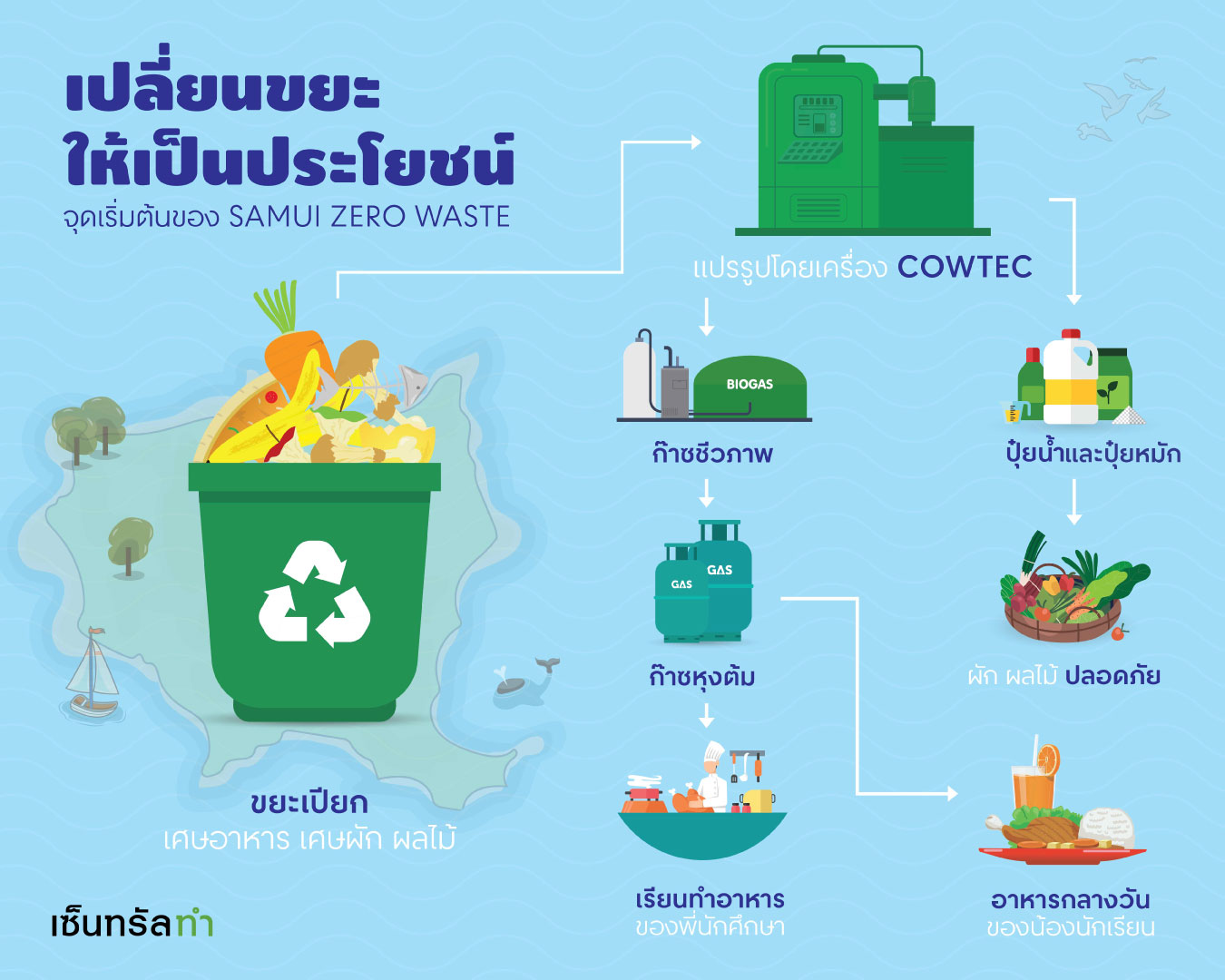
Involvement and activities
The university administrator jointly signed the declaration of intention to reduce and eliminate single-use plastic, raising awareness and changing environmentally friendly consumption behavior in the university.
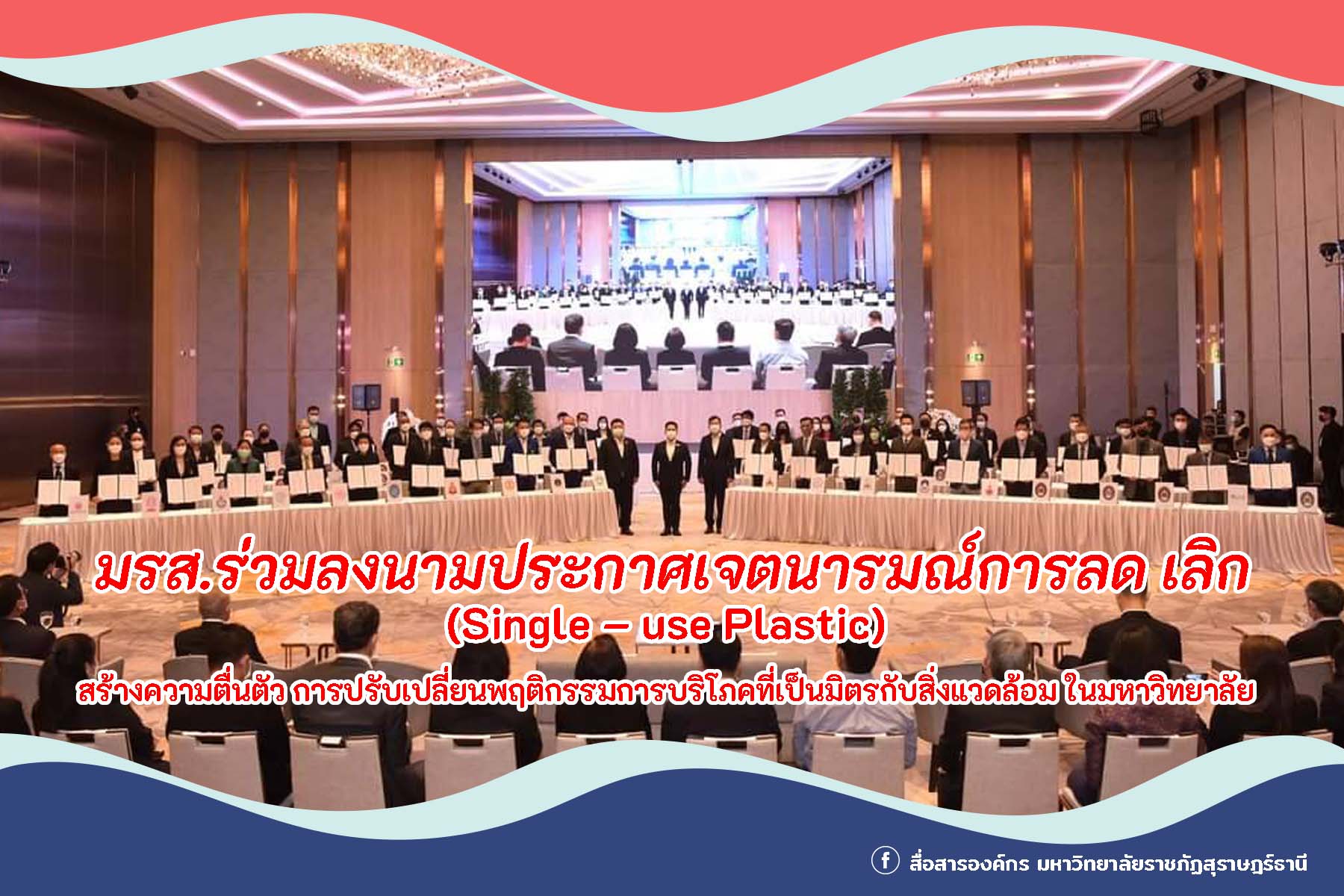
The nationwide university administrator jointly signed the declaration of intention to reduce and eliminate single-use plastic and to create collaboration and raise awareness among students, teachers, and staff. This demonstrates the government’s commitment to environmental protection and sustainable consumption. The Ministry is working with 59 universities through the Green Youth program to reach the goal of net zero.

จากความสำเร็จของความร่วมมือระหว่าง แฟมิลี่มาร์ท เทศบาลนครเกาะสมุย และโรงเรียนเทศบาล ๑ วัดละไม ในการแปรรูปขยะอินทรีย์ให้เกิดประโยชน์สูงสุด โดยทุกวันพนักงานแฟมิลี่มาร์ทจะทำการแยกขยะอาหารที่หมดอายุ ออกจากบรรจุภัณฑ์พลาสติก และนำขยะอินทรีย์เหล่านั้น ส่งต่อไปยังโรงเรียนเพื่อแปรรูปผ่านเครื่อง COWTEC เป็นแก็สหุงต้ม อาหารสัตว์ และปุ๋ย เพื่อใช้ในการเกษตรและเลี้ยงสัตว์ ซึ่งโรงเรียนสามารถลดค่าแก๊สหุงต้มได้มากถึง 5000 บาทต่อเทอม ชุมชนมีปุ๋ยเพื่อปลูกผักและเป็นอาหารสัตว์ จนได้ผลผลิตอินทรีย์คุณภาพดี ทั้ง ผัก ผลไม้ และไข่ไก่ หมุนเวียนกลับมาเป็นอาหารกลางวันให้กับนักเรียน
นอกจากนี้ “เซ็นทรัล รีเทล” ยังได้ต่อยอดความสำเร็จเพื่อพัฒนาสมุยให้เป็นเมืองต้นแบบด้านการจัดการขยะ โดยร่วมมือกับ มหาวิทยาลัยราชภัฏสุราษฎร์ธานี ติดตั้งเครื่องผลิตปุ๋ยหมักและก๊าซชีวภาพ (Cowtec) โดยจะมีการคัดแยกขยะอินทรีย์จาก ศูนย์การค้าเซ็นทรัลเฟสติวัล สมุย แฟมิลี่มาร์ท และ โรงแรมเซ็นทารา นำไปส่งต่อยังวิทยาลัยฯ เพื่อแปรรูปเป็นแก๊สหุงต้มให้น้องๆ นักศึกษาได้ใช้ในการเรียนรู้ด้านการโรงแรมและการท่องเที่ยว นอกจากนี้ปุ๋ยอินทรีย์ที่ได้จากการแปรรูปจะถูกนำไปใช้ในโครงการ Farm to table , Organic Café แปลงเกษตรสาธิต ที่จะเป็นต้นแบบในการทำเกษตรอินทรีย์ให้กับชุมชน และในอนาคตผลผลิตที่ได้จากโครงการนี้จะถูกนำไปจำหน่ายที่ ท็อปส์ ซูเปอร์มาร์เก็ต และศูนย์การค้าในเครือกลุ่มเซ็นทรัลด้วย
นอกจากนี้ “เซ็นทรัล รีเทล” ยังได้ต่อยอดความสำเร็จเพื่อพัฒนาสมุยให้เป็นเมืองต้นแบบด้านการจัดการขยะ โดยร่วมมือกับ มหาวิทยาลัยราชภัฏสุราษฎร์ธานี ติดตั้งเครื่องผลิตปุ๋ยหมักและก๊าซชีวภาพ (Cowtec) โดยจะมีการคัดแยกขยะอินทรีย์จาก ศูนย์การค้าเซ็นทรัลเฟสติวัล สมุย แฟมิลี่มาร์ท และ โรงแรมเซ็นทารา นำไปส่งต่อยังวิทยาลัยฯ เพื่อแปรรูปเป็นแก๊สหุงต้มให้น้องๆ นักศึกษาได้ใช้ในการเรียนรู้ด้านการโรงแรมและการท่องเที่ยว นอกจากนี้ปุ๋ยอินทรีย์ที่ได้จากการแปรรูปจะถูกนำไปใช้ในโครงการ Farm to table , Organic Café แปลงเกษตรสาธิต ที่จะเป็นต้นแบบในการทำเกษตรอินทรีย์ให้กับชุมชน และในอนาคตผลผลิตที่ได้จากโครงการนี้จะถูกนำไปจำหน่ายที่ ท็อปส์ ซูเปอร์มาร์เก็ต และศูนย์การค้าในเครือกลุ่มเซ็นทรัลด้วย
นอกจากนี้ “เซ็นทรัล รีเทล” ยังได้ต่อยอดความสำเร็จเพื่อพัฒนาสมุยให้เป็นเมืองต้นแบบด้านการจัดการขยะ โดยร่วมมือกับ มหาวิทยาลัยราชภัฏสุราษฎร์ธานี ติดตั้งเครื่องผลิตปุ๋ยหมักและก๊าซชีวภาพ (Cowtec) โดยจะมีการคัดแยกขยะอินทรีย์จาก ศูนย์การค้าเซ็นทรัลเฟสติวัล สมุย แฟมิลี่มาร์ท และ โรงแรมเซ็นทารา นำไปส่งต่อยังวิทยาลัยฯ เพื่อแปรรูปเป็นแก๊สหุงต้มให้น้องๆ นักศึกษาได้ใช้ในการเรียนรู้ด้านการโรงแรมและการท่องเที่ยว นอกจากนี้ปุ๋ยอินทรีย์ที่ได้จากการแปรรูปจะถูกนำไปใช้ในโครงการ Farm to table , Organic Café แปลงเกษตรสาธิต ที่จะเป็นต้นแบบในการทำเกษตรอินทรีย์ให้กับชุมชน และในอนาคตผลผลิตที่ได้จากโครงการนี้จะถูกนำไปจำหน่ายที่ ท็อปส์ ซูเปอร์มาร์เก็ต และศูนย์การค้าในเครือกลุ่มเซ็นทรัลด้วย
Cargill partners with UNDP and Suratthani Rajabhat University to rid waters of waste in Thailand The ‘SeaShine’ project encourages the community to take part in waste management, reduce environmental impact and generate income.

BANGKOK, THAILAND – (27 December 2021): Today, Cargill launched SeaShine, a collaborative project in conjunction with the United Nations Development Program (the UNDP) and Suratthani Rajabhat University to reduce leakage of organic and plastic waste to the ocean and enhance community welfare in coastal cities in southern Thailand.
The initiative will begin in January 2022; Cargill, UNDP and the university will collaboratively develop a sustainable waste management ecosystem by launching a waste management program to collect plastic waste and animal feed bags and exchange them for sustainable alternatives.
The partnership aims to help tackle the estimated 63 tons of waste per month generated by the community surrounding the university. Such huge volume of waste has become a major issue for the university and surrounding community. Under this program, an SDG Station (Sustainable Development Goal Station) will be built on a plot of 3-rai in Rajabhat Surat Thani University. Residents in the surrounding community will learn to separate waste and sell it to the SDG Station for recycling. This program ensures that waste is properly managed, provides locals an opportunity to earn money from selling their waste, decreases the amount of waste released into the ocean, and the university and its students get a hands-on experience about waste management.
“Cargill has a long history of nourishing and caring for the communities in Thailand,” said Ms. Margo de Naray, Managing Director of Cargill Aquaculture Nutrition, Thailand and Vietnam. “This partnership both broadens and deepens our extensive ties in Thailand, assisting in tackling one of the country’s biggest challenges. This falls in line with our commitment to building partnerships and collaborations that help fuel transformation through ocean stewardship and fulfill the company-wide purpose of nourishing the world in a safe, responsible and sustainable way.”
During the COVID-19 pandemic, plastic waste increased significantly, driven by lock-down and work from home policy across the country. In Surat Thani where Suratthani Rajabhat University is situated, it is projected that the volume of waste to landfill in this area will reach 426 tons per year in 2021.
“UNDP is pleased to partner with Cargill on this important initiative– an innovative approach to waste management. Plastic and organic waste reduction will greatly enhance the well-being of communities living in coastal areas while creating long term environmental sustainability. This constitutes a powerful demonstration of the potential impact of localizing action for the SDGs through a strong partnership between the private and public sectors” adds Renaud Meyer, UNDP Resident Representative to Thailand.
In carrying out this project, the SDG Management Unit and volunteer students will work together to develop an IT platform that records waste data logging by individual account and convert such data into some forms of benefits, such as greenhouse gas reduction and amount of waste recycled. Such data will be shown on a dashboard for all to see and track the progress of the project.
